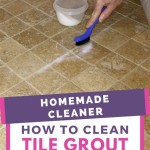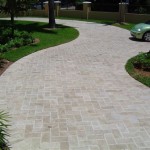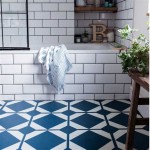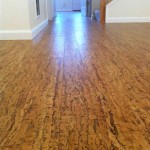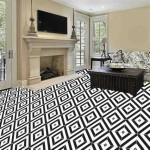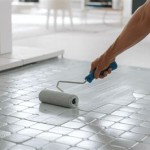Can You Tile Over Cement Board Without Waterproofing?
Cement board is a versatile and durable substrate commonly used for tiling in showers, bathrooms, and other areas prone to moisture. While it offers excellent moisture resistance, the question of whether it can be tiled over without additional waterproofing often arises. The answer isn't always straightforward and depends on several factors, including the project's specific requirements, existing conditions, and the type of tiles being used.
This article will explore the complexities of tiling over cement board without waterproofing, discussing the potential advantages and disadvantages, and providing guidance on when it might be acceptable and when it is crucial to incorporate a waterproofing membrane.
Understanding Cement Board and its Moisture Resistance
Cement board is a composite material composed of Portland cement, sand, and fibers, designed for use in wet environments. The combination of these elements creates a dense, rigid board with excellent moisture resistance. It can withstand exposure to water for extended periods without significant deterioration. Cement board's primary role is to provide structural support and a smooth surface for tiling. However, it is not considered a waterproof barrier.
While cement board is inherently moisture-resistant, it is not impervious to water. Water can penetrate through the joints and seams, potentially leading to damage or mold growth over time, especially in areas with constant exposure to water, such as showers or tubs. This highlights the importance of proper installation techniques, including sealing joints and seams with a waterproof sealant.
Situations Where Tiling Over Cement Board Without Waterproofing May Be Acceptable
In certain situations, tiling directly over cement board without an additional waterproof membrane might be acceptable. These scenarios usually involve areas that experience minimal exposure to water or where the risk of water damage is low. Some common examples include:
•
Backsplashes:
Backsplashes behind kitchen sinks or countertops generally receive minimal water exposure. Tiling directly over properly installed cement board can be sufficient in these areas, assuming the grout lines are properly sealed.•
Wall Tile in Low-Moisture Areas:
Walls in areas like bedrooms, living rooms, or hallways that are not exposed to direct water contact can typically be tiled over cement board without waterproofing. Moisture penetration is less likely in these dry environments.•
Floors in Low-Traffic Areas:
Flooring in areas with low traffic, such as guest bedrooms or hallways, may not require an additional waterproof barrier. However, it is still crucial to ensure proper drainage and ventilation to prevent moisture buildup.It is essential to remember that these are general guidelines. The specific conditions of the project and the type of tile being used should be considered. Consulting with a professional tile installer or an experienced contractor is always recommended to determine the best course of action for any tiling project.
When Waterproofing is Essential for Tiling Over Cement Board
In areas subject to high water exposure, such as showers, bathtub surrounds, and wet rooms, waterproofing becomes essential. Even though cement board is moisture-resistant, it does not act as a waterproof barrier and cannot prevent water from penetrating through the joints and seams. Without a waterproof membrane, moisture can seep through the cement board and into the underlying structure, leading to issues like:
•
Mold and Mildew Growth:
Water trapped behind the tile can create a breeding ground for mold and mildew, leading to health problems and potentially structural damage.•
Subfloor Damage:
Water can penetrate the cement board and damage the underlying subfloor, leading to rotting and warping.•
Tile Failure:
Water trapped behind the tile can cause them to loosen and crack, leading to costly repairs and potential safety issues.In these high-moisture areas, incorporating a waterproof membrane, like a liquid membrane or a sheet membrane, is crucial. Waterproofing membranes act as a barrier, preventing water from penetrating the cement board and ensuring the longevity of the project.
In addition to the presence of water exposure, other crucial considerations when deciding whether to waterproof over cement board include:
•
Tile Type:
Porous tiles, like natural stone, absorb moisture, making waterproofing even more crucial. Waterproof membranes create a moisture barrier, preventing moisture from permeating the tile and causing damage.•
Grout Joint Width:
Narrow grout joints are more susceptible to water penetration. Although cement board is moisture-resistant, it's essential to seal grout joints properly, especially in areas with high water exposure. Wider grout joints can offer better protection against water penetration.•
Climate:
In humid climates, the risk of moisture problems increases. Implementing a waterproofing membrane can mitigate the impact of high humidity and ensure the project's durability.By carefully considering these factors and consulting with qualified professionals, you can make an informed decision about whether to waterproof over cement board for your tiling project. Choosing the appropriate method is essential to ensure the project's longevity and prevent potential issues down the line.
Do You Need To Seal The Cement Board Before Tiling Quora

The Best Way To Waterproof Your Shower Before Tiling Inspired Hive

Installing Cement Board In The Bathroom Angie S Roost

Is Hardibacker And Durock Cement Board Waterproof Diytileguy

Laying Cement Board For Tile Should I Waterproof It Too

How To Install Cement Board For Tile Bower Power

How To Install Cement Board For Tile Projects Diy Family Handyman

How To Install And Waterproof Cement Board Tub Area

How To Install And Waterproof A Walk In Shower Megan S Moments
Waterproof Hardibacker Ceramic Tile Advice Forums John Bridge
Related Posts


